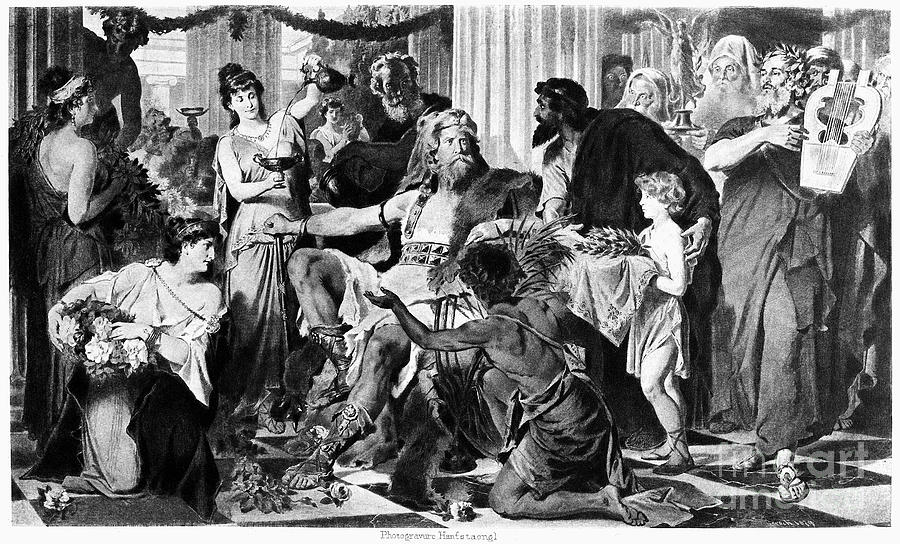 Alaric struck first at the eastern empire. He marched to the neighborhood of Constantinople but, finding himself unable to undertake a siege, retraced his steps westward and then marched southward through Thessaly and the unguarded pass of Thermopylae into Greece.
Alaric struck first at the eastern empire. He marched to the neighborhood of Constantinople but, finding himself unable to undertake a siege, retraced his steps westward and then marched southward through Thessaly and the unguarded pass of Thermopylae into Greece.
The armies of the eastern empire were occupied with Hunnic incursions in Asia Minor and Syria. Instead, Rufinus attempted to negotiate with Alaric in person, which only aroused suspicions in Constantinople that Rufinus was in league with the Goths. Stilicho now marched east against Alaric. According to Claudian, Stilicho was in a position to destroy the Goths when he was ordered by Arcadius - influenced by Rufinus - to leave Illyricum. Soon after, Rufinus' own soldiers hacked him to death. Power in Constantinople now passed to the eunuch Chamberlain Eutropius.
Rufinus' death and Stilicho's departure gave free rein to Alaric's movements; he ravaged Attica but spared Athens, which capitulated at once to the conqueror. In 396, he wiped out the last remnants of the Mysteries at Eleusis in Attica, ending a tradition of esoteric religious ceremonies that had lasted since the Bronze Age. Then he penetrated into the Peloponnesus and captured its most famous cities—Corinth, Argos, and Sparta—selling many of their inhabitants into slavery.
Here, however, his victorious career suffered a serious setback. In 397 Stilicho crossed the sea to Greece and succeeded in trapping the Goths in the mountains of Pholoe, on the borders of Elis and Arcadia in the peninsula. From there Alaric escaped with difficulty, and not without some suspicion of connivance by Stilicho, who supposedly had again received orders to depart. Alaric then crossed the Gulf of Corinth and marched with the plunder of Greece northward to Epirus. Here his rampage continued until the eastern government appointed him magister militum per Illyricum, giving him the Roman command he had desired, as well as the authority to resupply his men from the imperial arsenals.
Немає коментарів:
Дописати коментар